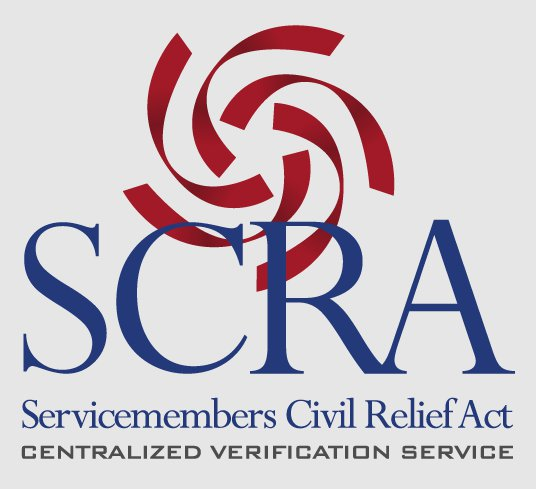So, you just signed a new lease yet received military orders for displacement?
Unfortunately, breaking a lease in the military is a common occurrence thanks to the sporadic nature of PCS orders.
Therefore, service members that are notified of a Permanent Change of Station (PCS) are protected by law.
Nonetheless, there are several important things to know about breaking a lease with military orders.
Learn about the 6 most important, below.
Related Article – PCS In Military: Here’s What It Means & What To Expect
Table of Contents
6 Things to Know About Breaking Lease in Military

What happens when service members sign a new residential lease only to discover they have to move soon?
Unfortunately, Permanent Change Station (PCS) orders arrive when you least expect.
Consequently, if you are needing to relocate in the near future, you may be wondering what to do about a lease?
In most situations (i.e. those NOT in the military), breaking a residential lease is a serious issue that may result in fines or other punishments.
However, military personnel are protected against breaking a lease thanks to the Servicemember Civil Relief Act (SCRA).
The federal law allows active duty military personnel to back out of a lease agreement in the event they are assigned to a new duty station.
Accordingly, breaking a lease with military orders is perfectly within your legal rights.
Notwithstanding, there are a few important things to know about military orders breaking a lease, and how to properly handle the situation:
#1. Servicemember Civil Relief Act (SCRA)

It’s common procedure in the military to receive Permanent Change Station (PCS) orders.
While serving in the military, the requirement to pack up your belongings and move can occur at any moment in time.
Therefore, service members and military dependents need to be flexible.
Fortunately, military personnel and families are protected under federal law in regards to breaking a lease.
In the military, active duty personnel are granted an exception to terminating a residential lease early because of assignment orders.
For this reason, breaking a lease because of military orders is allowed under the Servicemember Civil Relief Act (SCRA).
History
The federal law was signed into office in 2003 by President Bush.
The purpose of the bill is to clarify language that was initially established in the Soldiers’ and Sailors’ Civil Relief Act (SSCRA).
Accordingly, the Servicemember Civil Relief Act offers protection for service members facing eviction or needing to terminate a lease.
The SCRA features many other protections for military personnel yet is most noteworthy for preventing fines and penalties associated with breaking a lease.
Who qualifies for SCRA?
As a result, the federal law effectively postpones or suspends certain civil obligations to military personnel so they can fully devote their attention to service.
These guidelines currently apply to all active duty service members, including members of the National Guard and Reserve.
Furthermore, it’s worthwhile discovering what other protections are offered under SCRA.
For example, utilizing these legal protections may assist with pending trials, taxes, or outstanding credit debt.
The Servicemember Civil Relief Act was enacted to provide safeguards at home for military families, including assistance with mortgages and eviction notices.
Related Article – DPS Military Move: 8 Things You Need To Know
#2. SCRA Guidelines / Responsibilities
The SCRA protects service members and military dependents from penalties associated with terminating a lease early or getting evicted.
Therefore, you are fully protected under federal law to break a lease early because of military orders.
Be that as it may, there are several stipulations that come with the Servicemember Civil Relief Act.
It’s your responsibility to understand these guidelines and make sure they are followed to avoid any fines or penalties.
In general, service members are allowed to terminate a lease without issue so long as the property is occupied, or intended to be occupied.
The rules apply to service members along with eligible military dependents of residential, professional, business, or agricultural property.
Notwithstanding, the service member must:
- Entered active duty service during the lease period*, OR
- Executed a lease while in the military and then received PCS orders or deployment for longer than 30 days.
Those that meet these guidelines are permitted to break a lease early, and without fines or other consequences.
*NOTE: Those that entered military service after signing a lease may still have the opportunity of breaking the agreement early due to PCS orders. Likewise, you should also submit written notice to a landlord.
#3. Notifying Landlords with Written Notice

It’s important to communicate with a landlord that you’ll be unable to finish a lease.
Thus, service members are required to deliver written notice to the landlord informing them of the military orders.
It’s crucial to remind military personnel that an oral warning / notification is simply not enough.
The law requires service members to notify a landlord by written notice and deliver in-person or by standard mail (see: Tips on Writing Notice, below).
In general, there are different guidelines depending on the type of rental:
- Month-to-Month Rentals
- All Other Leases
For month-to-month agreements, the termination is effective 30 days after the first date on which the next rental payment is due.
In other words, if you notify the landlord in September (and rent is generally due on the 1st of each month), then the last payment on the rental would be due October 1.
Furthermore, the individual would not be obligated to any other payments, starting November 1.
Meanwhile, all other leases (not handled on a month-to-month basis) have a termination date for the last day of the month following the written notice.
For example, even in a yearly lease agreement, the termination for military personnel would be April 30, if they gave their notice sometime in March.
Of course, these conditions are vastly different from most lease agreements where there are significant fines and penalties for leaving early.
Tips on Writing Lease Termination Notice
It’s impossible to predict how a landlord may react to breaking a lease early because of military orders.
Service members may have varying relationships with their landlord or comprehend how to address the situation best.
In general, it’s recommended to stay honest and straightforward about your request.
Even if the landlord reacts with anger or hostility, you are perfectly entitled to this right thanks to the SCRA.
Those drafting a written notice for a landlord need only make it short and sweet.
There is no need to get into elaborate detail other than you received PCS orders and need to vacate the property soon.
First, make sure you are clear about the day in which you plan to move out as well as the final termination date.
It also helps to provide contact information (including the new address) since some rentals are operated by large property management companies.
Service members should include a copy of the official military orders with the written notice.
Landlords have the legal right to verify your PCS orders, so usually it’s best to attach a copy with the initial delivery.
Additionally, notify the landlord of when your last payment will be made (because of SCRA rules) as well as request the return of the security deposit.
Landlords are required to return a security deposit so long as: A) the tenant left in a timely manner, and B) vacated the residence in favorable condition.
Often, individuals choose to send this written notice by certified mail.
Doing so, allows you to track delivery and make sure it was received.
Lastly, do not hesitate to consult with a legal expert in the event the landlord refuses or dismisses the request.
#4. Financial Obligations
The good (and bad) news is it’s very common for active duty personnel to receive PCS orders without warning.
Thus, you are far from the first service member that has to break a lease in order to fulfill service obligations.
Nevertheless, this may come across as a hassle, especially when dealing with a combative landlord.
It’s worthwhile to note that just because a landlord is required to terminate the lease early for military personnel, doesn’t mean they’ll be happy about it – or potentially push back.
Regardless, service members are on the right side of the law and are protected against such backlash.
Still, it’s important to understand the obligations of service members to prevent a situation from turning into litigation.
Service members are required to pay rent for any month(s) before the lease is terminated.
Often, this is usually not more than an additional month of rent thanks to current SCRA rules and regulations.
Please note this doesn’t matter whether you and your family live on the premise or have already vacated it.
Those that paid rent in advance are entitled to a refund.
As a result, contact your landlord and arrange for the rent to get prorated for the portion of the lease that was not used.
Moreover, landlords are required by law to refund any security deposit upon termination.
Related Article – UHaul Military Discount
#5. Military Clause in Lease Agreements

The Servicemember Civil Relief Act is generally enough to help military personnel break a lease before it expires.
However, it also helps to know about a military clause which is featured in some lease agreements.
Military clauses are in some rental contracts, especially near bases where relocation is common.
It’s worthwhile to mention that every military clause has different language but, in general, assist service members with terminating a lease early.
Consequently, service members may even have the right to break the agreement earlier than what is allowed under SCRA guidelines.
In order to discover if the lease contains a military clause, read over it carefully.
Often, this clause (if available in the lease contract) is under the “Early Lease Termination” section.
Military clauses are also important to request when agreeing to your next lease agreement, since displacement may occur again.
There are many resources to assist with understanding the language of a clause, including contact a nearby military housing office.
Furthermore, speaking with a legal professional is beneficial should a conflict arise.
Those that terminate an agreement early because of military orders (and leave the premise in a timely and orderly fashion) may not get penalized, or denied a security deposit refund.
Finally, when signing a new residential lease always double check the language.
You may stumble across a lease agreement that attempts to trick you by waiving your SCRA rights upon signature.
Those that waive those rights under a formal agreement are not provided the same legal protection.
Consequently, you may get tricked into spending hundreds or thousands in penalties.
#6. Moving Assistance for Military Personnel
Moving is never enjoyable.
Regardless, you can make the process easier on you and loved ones by relying on DPS military move.
The Defense Personal Property Program (DPS) makes relocating easier for service members.
It provides quality moving and storage services that remove a lot of stress and pressure associated with a move.
Thus, you can hire movers to haul all the heavy items as well as receive a weight allotment on household goods.
The Defense Personal Property Program offers many other resources for military families adjusting to a new environment.
Finally, military personnel and dependents may terminate the leases on motor vehicles early, too, in the event of PCS orders.
Conclusion
In the end, breaking a lease because of military orders is permissible for service members and dependents.
The Servicemember Civil Relief Act (SCRA) protects military personnel when unexpected military orders arrive.
Accordingly, service members are not punished for terminating a lease agreement early, like in most situations.
However, you’ll need to make sure you are aware of rights and responsibilities under SCRA in order to prevent the landlord from taking advantage of the situation.
Featured Image Source – www.Af.mil
- Ikon Pass Military Discount: Learn How To Save Big - January 31, 2025
- RTIC Military Discount: Find Out How To Save Big on Gear - January 30, 2025
- Traeger Military Discount: Learn How To Save Big on Smokers - January 28, 2025


